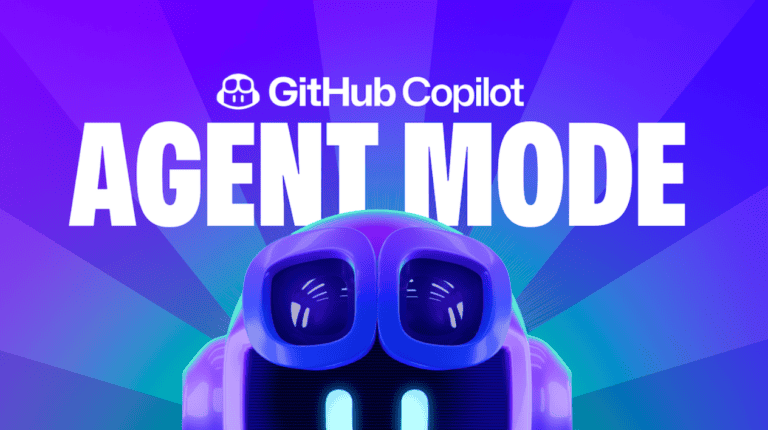“The agent awakens,” GitHub declares with the introduction of Agent Mode—an experimental new feature for GitHub Copilot. But that’s not all: Copilot Edits, additional LLMs, and image-to-code functionality are also arriving as part of this wave of updates.
GitHub’s stated goal is “to make developers’ lives easier with an AI pair programmer that helps them write better code.” It has been pursuing this vision for four years—well before the surge of GenAI tools sparked by ChatGPT. Yet the Microsoft subsidiary also finds itself following others in the world of agentic AI. Now, GitHub is offering its own approach in this area with Agent Mode. But how exactly does it work?
Making mistakes, then fixing them
A key aspect of GitHub’s AI agent is how it breaks tasks down. After a user enters a prompt, Copilot adjusts these instructions to include hidden commands—similar to many GenAI tools. Image generators, for instance, often create more detailed prompts if the user’s input is too short or vague.
Next, the agent executes a step-by-step plan, revising its own work as needed. This reflective process catches errors, much like the reasoning techniques used by OpenAI’s o1 model or DeepSeek-R1. Whether you call it “agentic AI” or “inference-time scaling,” the principle is the same: GenAI tools can reduce mistakes by taking more time to generate a final result.
Currently, GitHub’s Agent Mode is in preview for VS Code Insiders. You can enable it in GitHub Copilot Chat, then toggle between “Edit” and “Agent” in the Copilot Edits screen—extra steps characteristic of a product still in preview.
Copilot Edits, new models, and visibility
One feature that has already moved out of preview is Copilot Edits, now generally available. You provide the files that need changes, specify what you want to be altered, and Copilot generates suggestions. You can then accept or reject these changes—just like you would with a human co-programmer.
GitHub Copilot can now be used in more ways than ever. Through Vision for Copilot, you can upload an image and convert it into code. For those who prefer brainstorming via flowcharts over text prompts, this AI tool can handle that too. While it’s been available in VS Code since October (as noted by TechCrunch), the feature is now built into GitHub Copilot Chat—no personal API key is required.
Additionally, GitHub Copilot supports more models than before. The latest is Google’s Gemini 2.0 Flash, a notably fast LLM for its range of skills.
The future: a Devin competitor?
Finally, GitHub has revealed what’s in store for the future: Project Padawan, an effort to create AI-driven software engineering (SWE) agents. These agents sound like they could be a rival to Devin, a product once hyped for big promises but which never really took off. Whether GitHub fares better remains to be seen.
Also read: Fake stars undermine GitHub: 4.5 million fraudulent stars discovered
